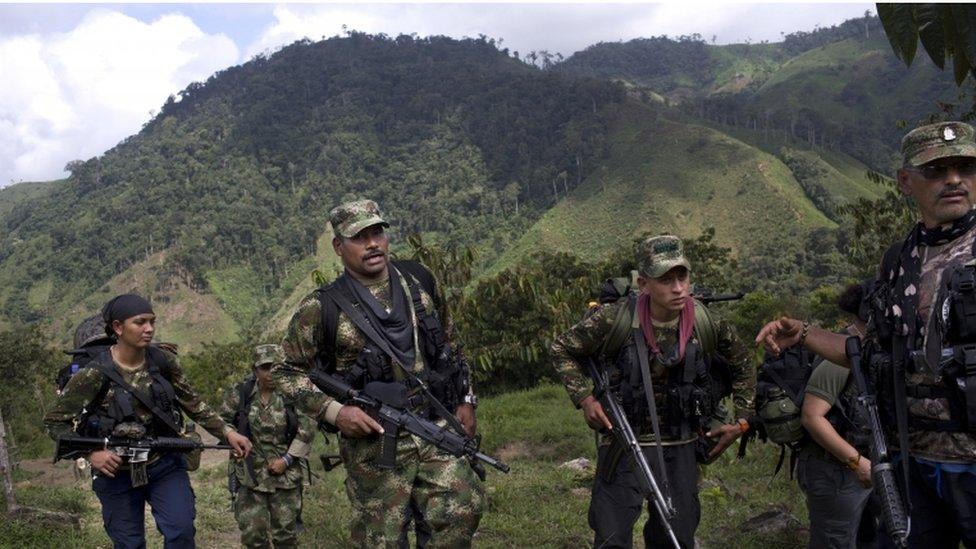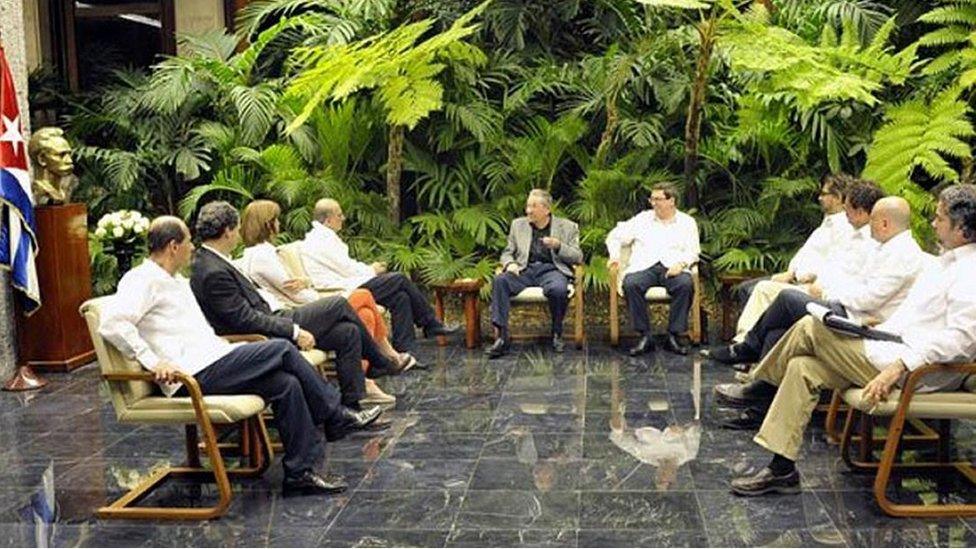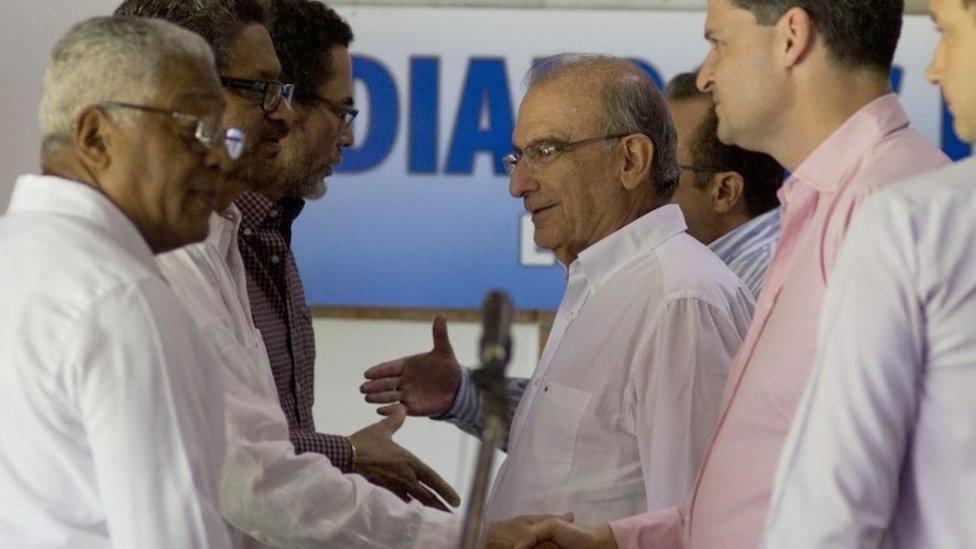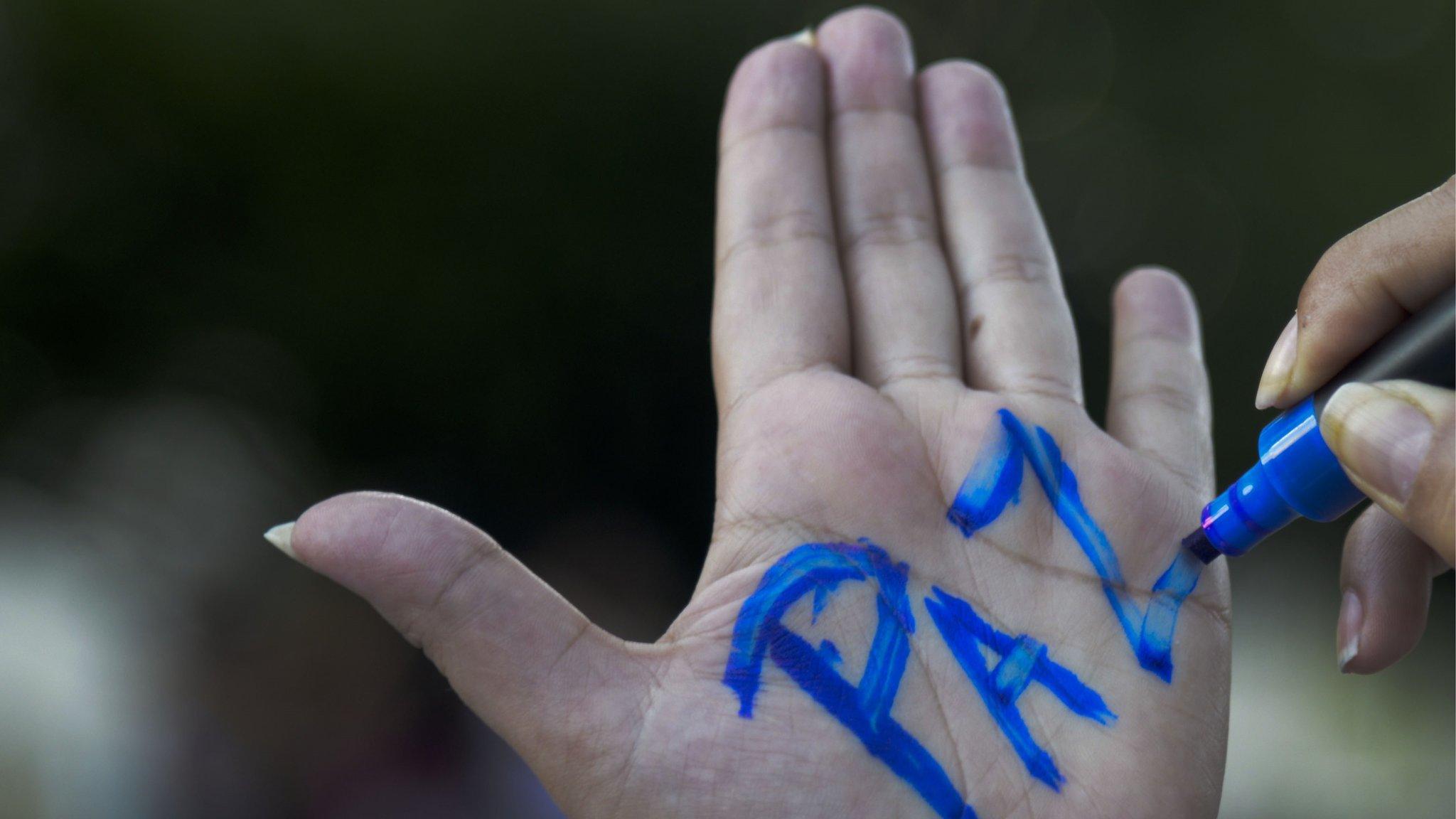Colombia and Farc request UN mission to monitor any ceasefire
- Published

An estimated 220,000 people have been killed in the armed conflict between the Farc and the Colombian military
The Colombian government and the left-wing Farc rebel movement have both asked the UN for a mission to oversee the end of their decades-long conflict.
Negotiators for the two sides at peace talks in Cuba said they would ask the UN to send a 12-month mission to oversee any ceasefire.
The UN has yet to agree to the proposal. The two sides have been holding peace talks for three years.
Both sides say they hope to reach a final peace deal by March 2016.
The BBC's Colombia correspondent Natalio Cosoy says the mechanism would only start to work once a final deal is agreed.
However both sides have insisted the announcement is more than a mere formality, suggesting it should be read as a signal that a definite deal is close, our correspondent adds.
'Transcendental' moment
"We have decided to ask the UN Security Council to create (a mission) of unarmed observers for a period of 12 months," the two sides said in a joint statement at peace talks in the Cuban capital, Havana, on Tuesday.
They said the mission would guarantee that any ceasefire and disarmament would be genuine and permanent, reports say.
Humberto de la Calle, the government's lead negotiator, described the announcement as a "transcendental" moment.
He said it was an "unequivocal demonstration of our desire to end confrontation", according to the Associated Press.

Peace process moving to final phase - by Leonardo Rocha, Americas Editor, BBC World Service
The joint announcement in Havana is a clear indication that the Colombian peace process is moving towards its final phase.
Since the negotiations were launched in November 2012, the Farc has announced several unilateral ceasefires and urged the government to do the same.
But even though the government has scaled down military operations recently, it has refused to join the Farc in a bilateral ceasefire.
President Juan Manuel Santos has said repeatedly that the rebels must first agree to lay down their weapons and give up their armed struggle.
Government and negotiators have now invited the UN Security Council to join them as an honest, reliable broker and oversee the end of the conflict.
The two sides have invested too much politically to let more than three years of negotiations fail at such a late stage, when difficult issues such as justice for the victims have been dealt with.
The Farc and the Colombian government seem to be working together now towards a safe, smooth landing.

An estimated 220,000 people have been killed in the fighting between Farc and the Colombian military, which began in 1964. It is the longest-running armed conflict in the Western Hemisphere.
Since official peace talks started in Havana in November 2012, negotiators have reached agreement on key issues such as the political participation of the rebels, land rights, drug trafficking and transitional justice.
However it is unclear whether a final deal can be reached by the 23 March deadline set last year.

The two sides have held more than three years of talks in Havana under the auspices of the Cuban government
In September, President Juan Manuel Santos and Farc chief Timoleon Jimenez, known as Timochenko, said they wanted an agreement within six months.
But the Farc said last week that "substantial hurdles" were putting the deadline under threat.
The request for a UN mission comes two days after Cuban President Raul Castro met with negotiators from both sides of the conflict.
- Published27 May 2013
- Published14 December 2015

- Published31 October 2014
